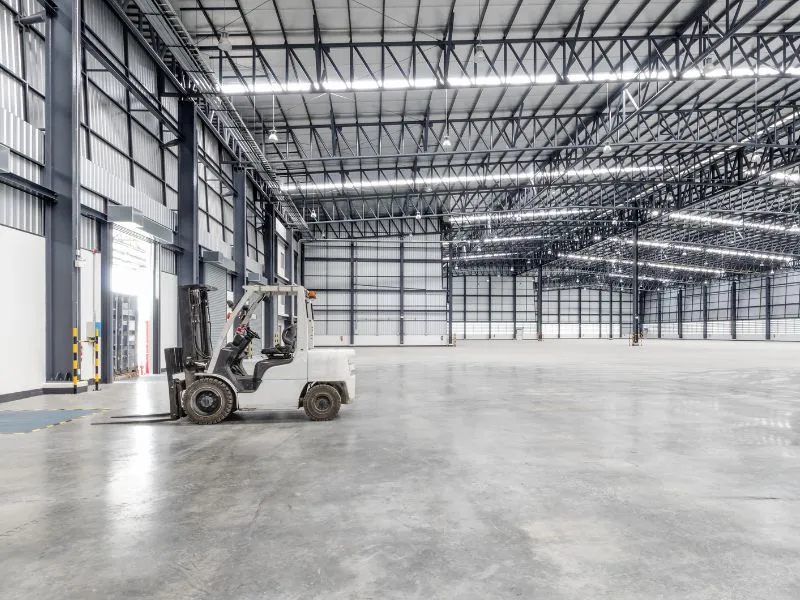Commercial margin and logistics costs
Table of Contents
External logistics is cheaper
Outsourced logistics is less expensive because of costs pressure and more reliable because of formal (contractual) approach.
The commercial company own logistics typically does not feel much pressure on costs efficiency, as it does on fulfilling the company external commercial promises. For such a company the most important is that the goods should be delivered on time, in right quantity and the proper shape. The reason is margin split. Typical logistics costs is as little as 2-3% of sales. That seems very little in comparison to 35-45% margin, so you do not intend to save part of 2-3%, to scarify as much as 40%. Saving 10% of logistics costs (2-3%!) mean that the cost is not 2% anymore, but 1,9%. But as long as it may jeopardize the cost of losing commercial business does not seem to be worth of this 0,1% of margin. It makes more sense to even overpay logistics, even the cost of 2,1% is still very little compared to 40%!
But it is true as long as company has own logistics. Once the commercial company starts using external logistics services, this before marginal cost line suddenly becomes very relevant. This time it is perceived separately, visible and painful. On top of that all costs accounted properly and in full scale, more then you ever anticipated. It also becomes an invoice to be paid, not a theoretical cost line in a budget (even then not in full amount).
Looking for a logistics partner in Poland?
Contact us and get an offer.
The perception is changing. The a/m 2% of margin becomes 100% cost of logistics. From this perspective saving 10% of 100% becomes tentative. Does it mean that external logistics is more expensive? No, just better accounted and more visible. And finally this cost becomes altogether lower, as everybody tries to reduce this symbolic 10% of logistics costs.
But the 3pl logistics is not only more cost efficient then running the warehouse by our own. It is also by far more scalable, for regular growth, as well as for sales or seasonal peaks. You no more keep too large and too expensive logistics (warehouse size, warehouse employees and their efficiency), just to make sure, in peak times you do not lose your commercial business. With external partner you anticipate the costs related to business size, and ability to adjust to business and seasonal peaks.
Does it mean, the cost efficiency is at the cost of delivery reliability? Not at all. The formal agreement is setting the rules which are to be kept. It sets the time for goods reception, response time, maximum time for the goods to be prepared for dispatch, the time the parcels are sent out. So the paradox is, that external logistics is not only cheaper (because of cost pressure), but also more liable, due to formal framework of operations. Last but not least, the size of your 3pl logistics partner enables him to use the most modern and most efficient logistics technology, together with skills and experience to use it in full.
But it is truth only for traditional trade. In e-commerce it is different. Here margins are small from the very beginning (smaller then in traditional trade), due to very often price wars and easy price comparison. E-commerce has also much higher logistics costs. It is due to large number of small parcels, returns, offered free delivery above certain order value. And on top of that unlike in traditional trade, part of logistics is not any more covered by the end customer, who delivers goods home by himself. Here the cost of last mile is visible and painful.
So, in e-commerce the temptation to use external logistics is more visible right from the beginning. Only some e-shops, in the very first phase of its development it is the owner, who tries tries to cover logistics by its own (with his wife support). But soon he realizes that larger scale logistics requires more space, more advanced infrastructure and specific know how. So either he finds and external partner to take care for this part of the business or he fetches such a partner right away, when he starts.
There are exceptions to this rule, when e-shops grow its logistics above this level, but most of them, if not from the beginning, try to outsource logistics once the level of 500-800 parcels per month is reached.
So, once you decided to use external logistics services, what is to be considered? The most important is experience in e-commerce (it is picking, packing, labor force costs, as main cost factor). Last but not least is ability to handle sales peaks as well as number of picking locations. The last challenge are typically returns, delivered in large scale, however not respecting any rules and challenging the logistics chain.
Edyta Pogorzelska
Call us
Write a message

